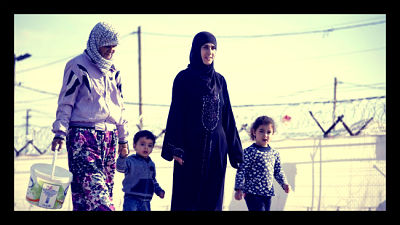Syrian Refugee Camps: Escape or Endangerment?

For many females in the Syrian refugee camps, the fear of death that propelled them from their home is now replaced by the fear of sexual assault in what is supposed to be their area of sanctuary. Rape and sexual assault have become major issues in the Syrian civil war, especially in the Zataari refugee camp in Jordan, where the problem has become more concentrated and centralized.
Because there is such a harsh stigma surrounding rape and the blame often lies on the victim rather than the assailant, most women do not report any incidence. The female victims often remain silent in fear of retribution from the perpetrators as well as the shame and anger that would fall on their family members.
In response to this problem, many women have entered into unwanted marriages for protection. These marriages are called “sutra” marriages and are becoming increasingly common as the Zaataari camp continues to be flooded with new refugees from across the border. This is often orchestrated by the male members of the family who, feeling they cannot offer their daughters adequate protection, marry them off to someone they believe can.
One Syrian American Medical Society volunteer estimates that the instances of child marriage in Syrian refugee camps are 60% higher than in Syria. Sexual exploitation in the Zaatari camp is so prevalent that a number of refugees have created monitoring groups that have uncovered several “marriage brokers” who infiltrated the camp posing as workers. These individuals are merely escorted off the camp if reported.
CNN recently published an article sharing numerous experiences of women inside the camp. One woman, named Ruwaida, who was a wedding dress designer back in Syria, now designs dresses for girls as young as 13. She says that girls rarely got married that young in Syria, but that it has become commonplace in their new temporary home.
“I feel like I have a child between my hands and she is having to take on a responsibility that’s bigger than she is,” Ruwaida says. “I feel her life is over, her life is ending early.” Another encounter documented was with 14-year-old Eman, who married at 13 and became a mother before her body was even fully developed. She said, “I wouldn’t have gotten married, it’s because of the situation.”
– Kathryn Cassibry
Sources: CNN, Standpoint Magazine
Photo: PressTV
